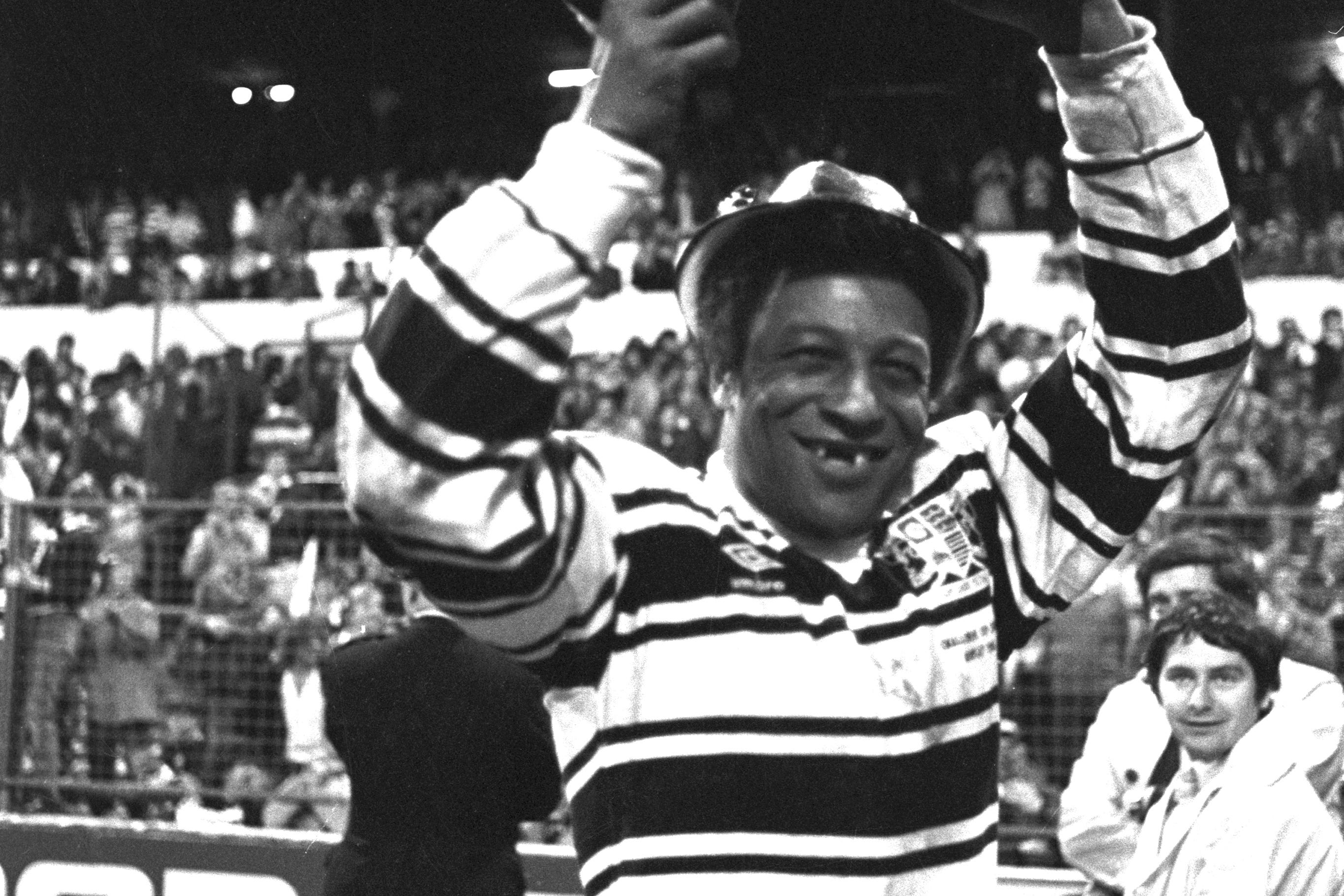Mike Stephenson recalls low-key fanfare when Britain won Rugby League World Cup
The heroes of 1972 made an unheralded return from France, where they had lifted the trophy

Your support helps us to tell the story
From reproductive rights to climate change to Big Tech, The Independent is on the ground when the story is developing. Whether it's investigating the financials of Elon Musk's pro-Trump PAC or producing our latest documentary, 'The A Word', which shines a light on the American women fighting for reproductive rights, we know how important it is to parse out the facts from the messaging.
At such a critical moment in US history, we need reporters on the ground. Your donation allows us to keep sending journalists to speak to both sides of the story.
The Independent is trusted by Americans across the entire political spectrum. And unlike many other quality news outlets, we choose not to lock Americans out of our reporting and analysis with paywalls. We believe quality journalism should be available to everyone, paid for by those who can afford it.
Your support makes all the difference.There was no fanfare, no open-top bus parade and certainly no visit to Number 10 when Britain last won the Rugby League World Cup.
The heroes of 1972 made an unheralded return from France, where they lifted the trophy after a 10-10 draw in the final against Australia in Lyon, as Mike Stephenson recalls.
“Instead of going back into Leeds, we got diverted to Birmingham,” says the former Dewsbury hooker and one-time television pundit who will return from his Sydney home to attend this year’s tournament.
“And when we arrived there was no media or radio, just one photographer who came over and said, ‘are you the mob that’s won something in the World Cup?’
“He said he only wanted the players who scored in the final so the only photo to my knowledge was of Terry Clawson, Clive Sullivan and myself with the trophy.”
The first fans to see the trophy on British soil were the British Aerospace factory work-mates of skipper Sullivan, whose 60-metre opportunist try provided the highlight of the all-important draw with the Kangaroos.
Sullivan, who was the first black sportsman to captain a British national team, died of cancer in 1985 but his widow Ros has vivid memories of the historic occasion.
“There wasn’t much ceremony,” she says. “We put banners in the street but, by the time he came home, it was dark so you couldn’t see them.
“It must have been a bit of a letdown after such a great win but he brought the World Cup home and took it to work the next day.
“I don’t think Clive was disappointed, he was so pleased they had won. They were very down to earth in those days. They all had second jobs, they weren’t as well looked after as they are now.”
Stephenson, who also scored two tries for his home-town club Dewsbury in their Championship victory over Leeds the following year, says Sullivan was the inspiration behind the World Cup triumph.
“The British press didn’t give us much chance but that made us more determined, it was a chance to prove them wrong,” he said.
If training was at nine, Clive would say, 'let's start at half seven'. He was an inspiration
“It proved to me the importance of team spirit. Clive was the captain as much off the field as on. If training was at nine, he’d say, ‘let’s start at half seven’. He was an inspiration.”
Stephenson says Britain’s triumph was such a low-key occasion, the victorious players were not presented with any medals and it was only through his initiative 41 years later that the wrong was put right.
“Because the French didn’t win it, they didn’t release any medals and they had to make a new trophy because the original one had been stolen,” he says.
“Before the 2013 World Cup, I went to the promoters and got them to cast some medals and it was agreed they would be presented before the final.
“But the RFL changed their mind and decided to present them at the British Lions lunch instead. I was back in Australia by then but at least my father was there to collect it on my behalf.”

